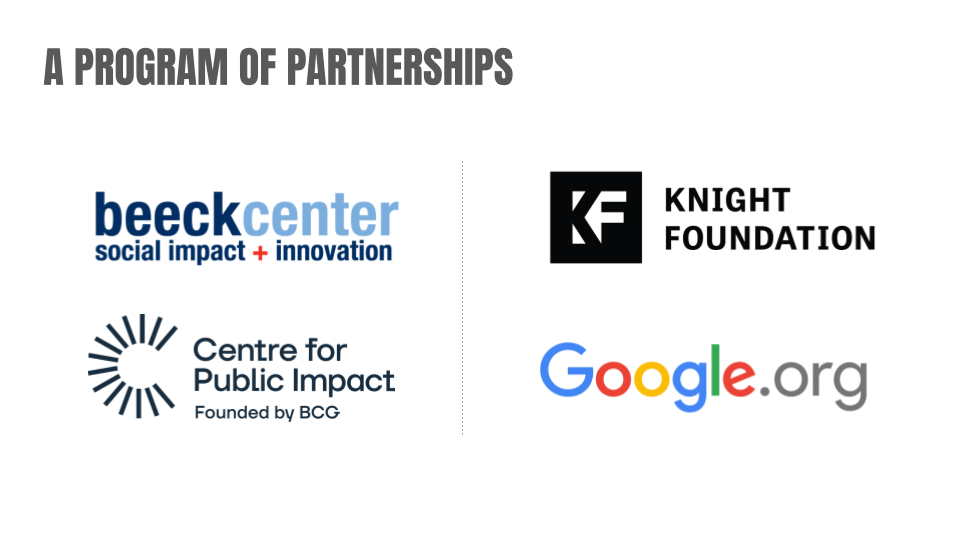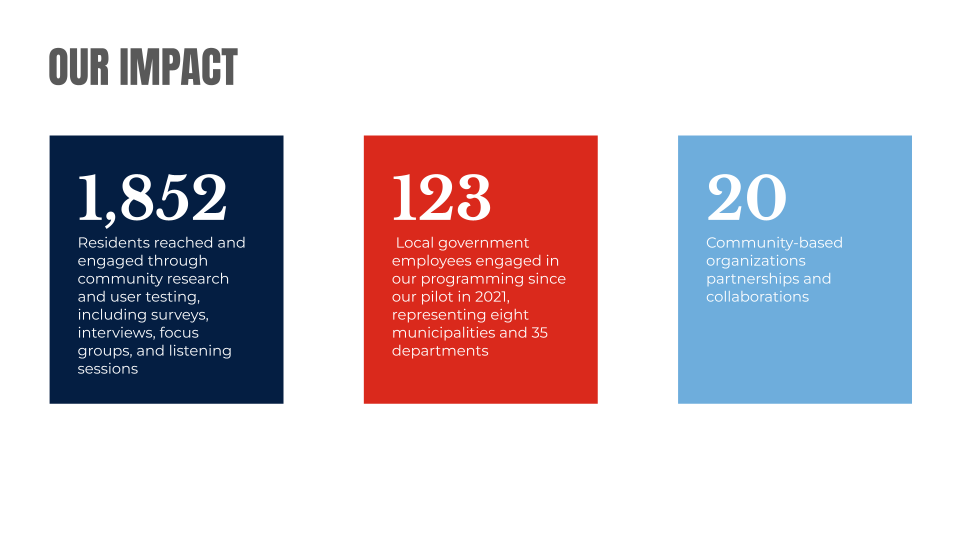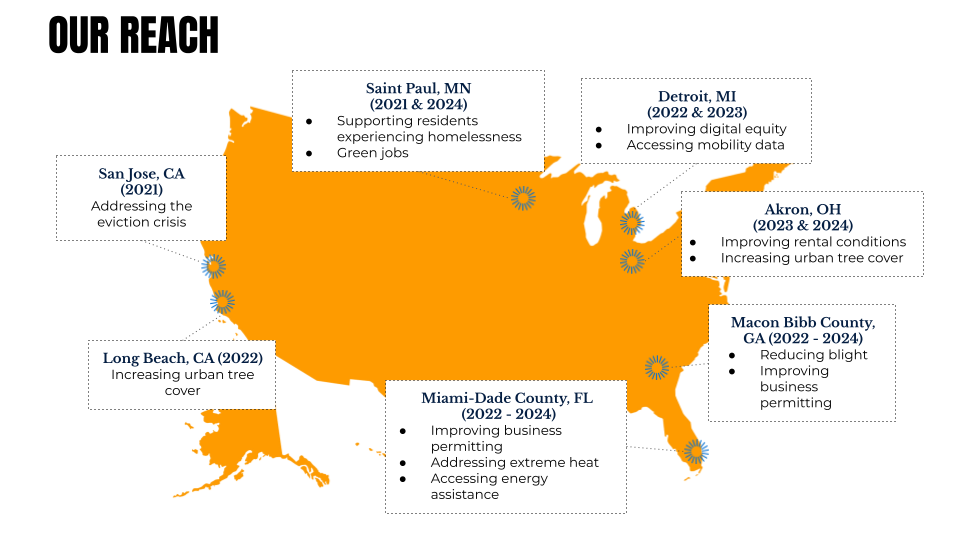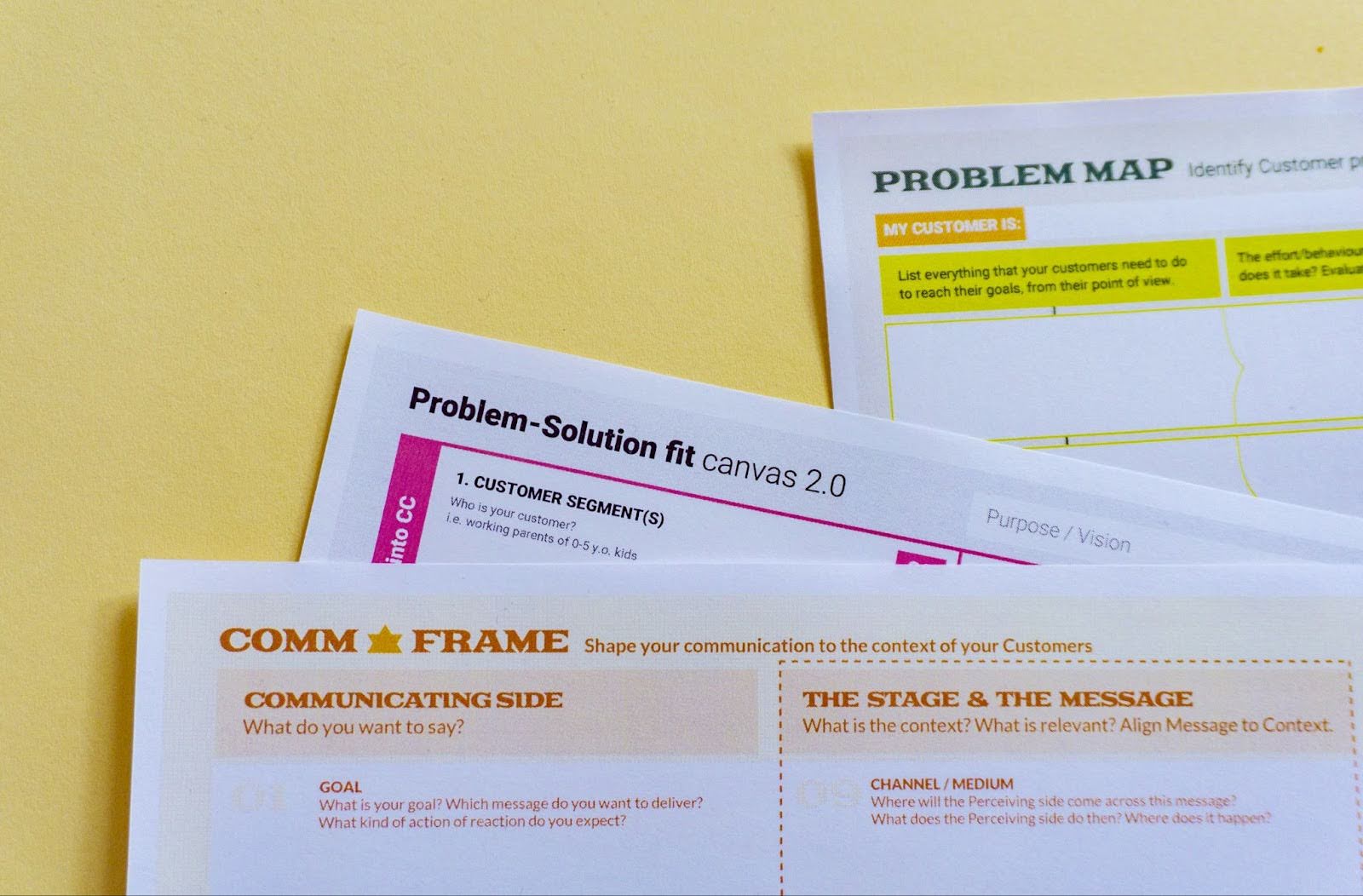The Opportunity Project for Cities
Highlights
- Partnering with communities, leveraging data, and using open-source technology to co-create accessible digital tools that address local challenges and improve government services delivery.
- Building a network of cities equipped to scale and adapt best practices for community-driven innovation, using replicable open-source solutions to benefit local communities and foster broader cultural change within their organizations and beyond.

The Opportunity Project for Cities (TOPC) is a 20-week program designed to help municipalities address local challenges with digital tools. TOPC focuses on three main goals:
- Collaborating with residents to tackle local issues
- Fostering cross-sector partnerships
- Enhancing digital innovation capacity
TOPC brings together local governments, technologists, and community leaders to co-create digital solutions using human-centered design and open data, addressing residents’ most urgent needs. This approach fosters transparency, accessibility, and responsiveness in government, and strengthens trust with residents and creating a foundation for lasting change.
Since 2016, the federal The Opportunity Project has united public and private sectors to use open data for developing digital solutions to critical socioeconomic and environmental issues. In 2020, the Beeck Center collaborated with the Centre for Public Impact, Google.org, and the Knight Foundation to bring this model to Knight cities.

TOPC’s model is grounded in human-centered design, equity-focused research, and open data—publicly available, machine-readable data—to inform digital solutions that genuinely meet community needs. Community members are positioned as experts and co-creators, not just passive recipients of government services, to ensure their lived experiences shape civic solutions.
Since 2021, TOPC has engaged over 1,800 residents in human-centered design activities, including interviews, focus groups, and user testing. We’ve trained 123 local government staff in research, design, prototyping, and product sustainability, supported by vital community partnerships.

Residents know their communities’ challenges and how to solve them best. TOPC pairs community experts with government teams and pro-bono technologists to create equity-driven, data-informed digital tools for pressing issues like climate resilience, housing evictions, and digital equity.

TOPC Resources & Tools

The TOPCities Resource Library shares tools, templates, learning labs, and news stories that address local challenges using human-centered design and open data. These resources empower local governments and communities to co-create equitable, innovative solutions to pressing issues using design sprint principles.
Explore the TOPCities Resource Library
Next Project Event
The Opportunity Project for Cities Demo Day 2024
November 14, 2024
1:30 pm
The Opportunity Project for Cities Demo Day 2022
November 15, 2022
1:00 pm
Project Updates
Project Reports & Resources
Implementing Benefits Eligibility + Enrollment Systems: State Responses to H.R. 1
Oct. 21, 2025

